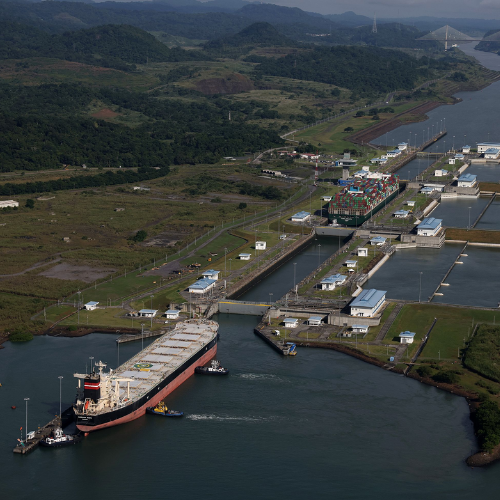On February 5, the Panama Canal Authority made a clear statement that there have been no changes to the fees it charges ships passing through the Canal, directly contradicting claims made by the US State Department. The authority explained that it had not made any adjustments to the tolls or fees that ships must pay to use the canal, which links the Atlantic and Pacific Oceans.
This statement came after the US State Department announced that government vessels from the United States would no longer have to pay fees to use the canal. According to the State Department, this move would save the US government millions of dollars every year. However, the Panama Canal Authority, the body responsible for managing and setting the canal’s fees, insisted that no such change had been made. They emphasized that any changes to the fees could only be decided by them, and no such decisions had been made.
Disagreement Over Toll-Free Access for US Government Ships
The issue began when the US government made a public announcement, claiming that it had reached an agreement with Panama that would allow US government vessels to pass through the Canal without paying any tolls. The State Department highlighted that this new arrangement would help the US save significant amounts of money, as many government vessels regularly travel through the canal for various purposes, including military operations and cargo transport.
Panama Says No to China: Belt and Road Agreement Will Not Be Renewed
The announcement from the State Department was based on statements made by US officials who claimed that Panama had agreed to this toll-free passage for government vessels. This news was shared on the social media platform X (formerly known as Twitter), where the US government highlighted the potential savings. The announcement was also tied to broader political discussions between the two countries, particularly regarding Panama’s relationship with China.
However, the Canal Authority quickly responded, denying that any such agreement had taken place. In their statement, they reiterated that they had not made any changes to their toll fees. This created confusion, as the US State Department’s announcement seemed to suggest a clear change in policy, while the Panama Canal Authority said no such change had occurred.
Tensions Between the Countries Over Canal Control
The Panama Canal is one of the most important waterways in the world. It plays a crucial role in international trade, with roughly 40% of US container traffic passing through it. The canal’s importance has led to significant political and economic interest from the United States, especially regarding who controls and has influence over it.
In recent years, former President Donald Trump had raised concerns about China’s growing involvement in the region, particularly its investments in ports on both sides of the canal. Trump suggested that China’s influence could pose a threat to the US, particularly in times of conflict. He even hinted that the US might consider using force to take control of the canal, a comment that sparked anger and concern in Panama and across the international community.
Honduras’ Bold Rivalry: $18 Billion Dry Canal Threatens Panama’s Dominance
Panama’s Response to US Pressure
Despite these tensions, Panama has consistently denied any claims that China has control over the canal. The government has also worked to address concerns raised by the US, including deciding not to renew its membership in China’s Belt and Road Initiative, a global infrastructure project led by Beijing. Panama has insisted that it remains fully in control of the canal and is committed to maintaining a good relationship with the United States while also engaging with other global partners.
Although President Trump and his officials have criticized Panama’s handling of these issues, there have been diplomatic talks between the two nations to ease these tensions. Following meetings with US officials, Panama’s government said that it was working to address US concerns, but the issue of toll-free passage for US government ships remains unresolved.
In any case, the disagreement over the Canal’s fees highlights the complex relationship between the two countries, with the US continuing to exert pressure over its role in the region and Panama holding firm in its control of the vital waterway.


